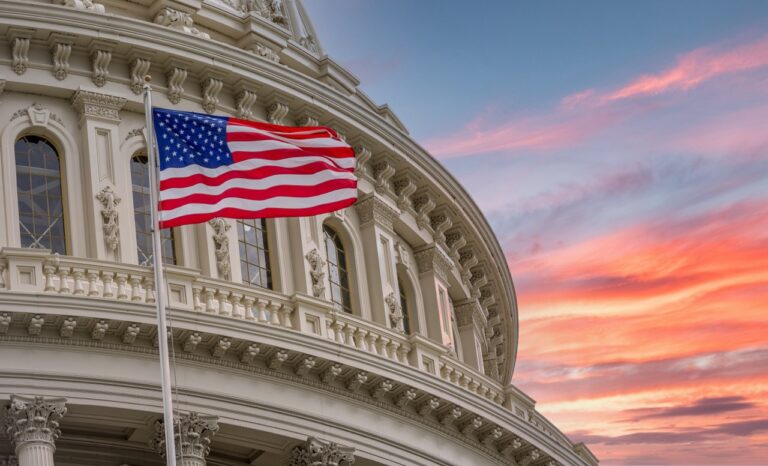Why Medicaid is Critical for Addressing the Nation’s Behavioral Health Crisis
 Author:
Ryan Hampton
Author:
Ryan Hampton
 Editor:
Patrick Nagle
Editor:
Patrick Nagle

It’s time we talk about Medicaid, not as a political football, but as the absolute lifeline it is for millions of Americans, especially those of us battling the intertwined demons of mental health and substance use disorders. As someone who’s walked through that fire and come out the other side, I can tell you unequivocally: without Medicaid, I wouldn’t be here today.
My own journey through the depths of severe heroin addiction, compounded by unresolved trauma and untreated depression, was a relentless march toward an early grave. I remember the crushing weight of it all—the constant pursuit of a fix, the unemployability, the gnawing despair that told me I was beyond saving. There were days, too many to count, when the thought of just giving up felt like the only escape from the relentless cycle of craving and shame. I was at rock bottom, stripped of everything, with nowhere left to turn.
Then, a miracle, disguised as a healthcare program: Medicaid. It wasn’t a luxury; it was the difference between life and death. Medicaid covered the cost of my treatment, a comprehensive program that addressed not just my addiction but the underlying mental health struggles that fueled it. It pulled me from the streets, from the brink of oblivion, and gave me a fighting chance to reclaim my life. This isn’t just my story; it’s the story of countless individuals whose lives have been salvaged by this essential program.
The Indisputable Truth: Medicaid is Essential
The data doesn’t lie. Medicaid isn’t just “a” payer for behavioral health services; it is the single largest payer in the United States. Consider this: nearly 40% of all non-elderly adult Medicaid enrollees—that’s a staggering 13.9 million people in 2020 alone—are living with a mental health or substance use disorder. And in 2023, out of 84.7 million adults grappling with mental illness or SUD, 22 million found their vital care through Medicaid. This program is the backbone of our behavioral health infrastructure.
When we talk about substance use disorders, we’re often talking about co-occurring mental health conditions. One in four Medicaid enrollees diagnosed with a mental illness also has a co-occurring substance use disorder, and for those with serious mental illness, that number jumps to 40%. You can’t treat one without addressing the other. Medicaid understands this, offering a comprehensive array of services that recognizes the complex interplay between these conditions. Most states cover a significant range of behavioral health services, with a median of 44 out of 55 queried services, indicating a broad commitment to integrated care.
Access, Outcomes, and Economic Sense
The impact of Medicaid extends far beyond simply covering costs. It dramatically improves access to care. In 2020, approximately three-quarters (74%) of Medicaid enrollees with diagnosed SUDs received some form of treatment or supportive service. For adults with mental illness, Medicaid enrollees actually received mental health treatment at rates higher or similar to those with private insurance (59% for Medicaid vs. 55% for private in 2023), and significantly higher than those without insurance (37%). This isn’t just about getting people into treatment; it’s about ensuring equitable access for our most vulnerable populations.
And let’s talk about the economic argument. Some argue that cuts to Medicaid will save money. But the truth is, investing in treatment through Medicaid is an investment in a healthier, more productive society, and it saves money in the long run. Studies have shown that for Medicaid recipients with alcohol use disorder, healthcare costs were 30% lower for those who received treatment medications compared to those who did not. Even more compelling, every single dollar spent on methadone, a critical medication for opioid use disorder, generates an estimated $4 to $5 in healthcare savings. The cost of untreated addiction and mental illness — through emergency room visits, incarceration, homelessness, and lost productivity — far outweighs the cost of providing life-saving care. Untreated individuals use twice as much healthcare as those in treatment.
The expansion of Medicaid under the Affordable Care Act has provided undeniable evidence of its profound impact. In states that expanded Medicaid, the uninsured rate among people hospitalized for opioid-related issues plummeted from 13.4% in 2013 to a mere 2.9% just two years later. Kentucky, after expanding Medicaid in 2014, saw an astonishing 700% increase in the number of Medicaid beneficiaries accessing substance use treatment services. These aren’t just statistics; they represent lives saved, families reunited, and communities made stronger.
A Human Imperative
For those of us who have stared into the abyss of addiction and mental illness, Medicaid isn’t a hand-out; it’s a hand-up. It’s the assurance that when you hit your lowest point, there’s a safety net, a pathway to healing, and a chance to rebuild. Cutting Medicaid isn’t just about balancing budgets; it’s about severing lifelines, reversing hard-won progress in the fight against overdose deaths, and condemning millions to preventable suffering and death.
My hope, my fervent plea, is that we see Medicaid for what it truly is: not a political talking point, but a fundamental pillar of public health and human dignity. It allowed me to transform my struggle into a mission to help others. Let’s ensure that countless more individuals have the same chance at recovery and a fulfilling life. Medicaid is an investment in humanity, and it’s one we simply cannot afford to lose.
We are a health technology company that guides people toward self-understanding and connection. The platform provides reliable resources, accessible services, and nurturing communities. Its purpose is to educate, support, and empower people in their pursuit of well-being.
Ryan Hampton is a national addiction recovery advocate and person in sustained recovery after 10 years of opioid use. He’s worked with leading nonprofits and authored three bestselling books on the overdose crisis.
Latest
Categories
- Opinion (137)


